In The State of Community Management, our comparison of internal and external communities described them as “similar, but different.” That holds true for internal and external community professionals as well. Our research finds that, when you focus on active members, the engagement profile of internal and external communities isn’t that different — they have similar percentages of lurkers/listeners, contributors, creators, and collaborators. And when you look at the skills internal and external community professionals value, they rank the skill families in the same order: strategic, engagement, content, business and technical.
But look below the surface, and things start to change.
While promoting good behaviors, facilitating connections and selling the benefits of community are seen as highly-valued in internal communities, data and member support skills play a much more powerful role in external communities. And looking at the most-valued skills role by role, more marked differences emerge. For example, skills like executive coaching, consulting, and training development and delivery score much higher for internal community managers and strategists than external ones.
Conversely, skills such as response and escalation, and moderation played higher in external community managers’ skill sets. In the end, though, these different approaches are judged very similarly.
Top 10 highest-valued skills by Community Type:
Internal Community
- Community Strategy Development
- Community Advocacy And Promotion
- Promoting Productive Behaviors
- Facilitating Connections
- Selling, Influencing And Evangelizing
- Measurement, Benchmarking And Reporting
- Communication Planning
- Listening And Analyzing
- Member Advocacy
- Consulting
External Communities
- Community Strategy Development
- Listening And Analyzing
- Community Advocacy And Promotion
- Measurement, Benchmarking, And Reporting
- Data Collection And Analysis
- Evaluating Engagement Techniques
- Empathy And Member Support
- Communication And Planning
- Writing
- Member Advocacy
The general themes of performance evaluation may be the same in each use case — but achieving success on these measures requires different strategies, skills and approaches from internal and external community professionals, and the specific data the define “success” varies.
Explore the Community Skills Framework:
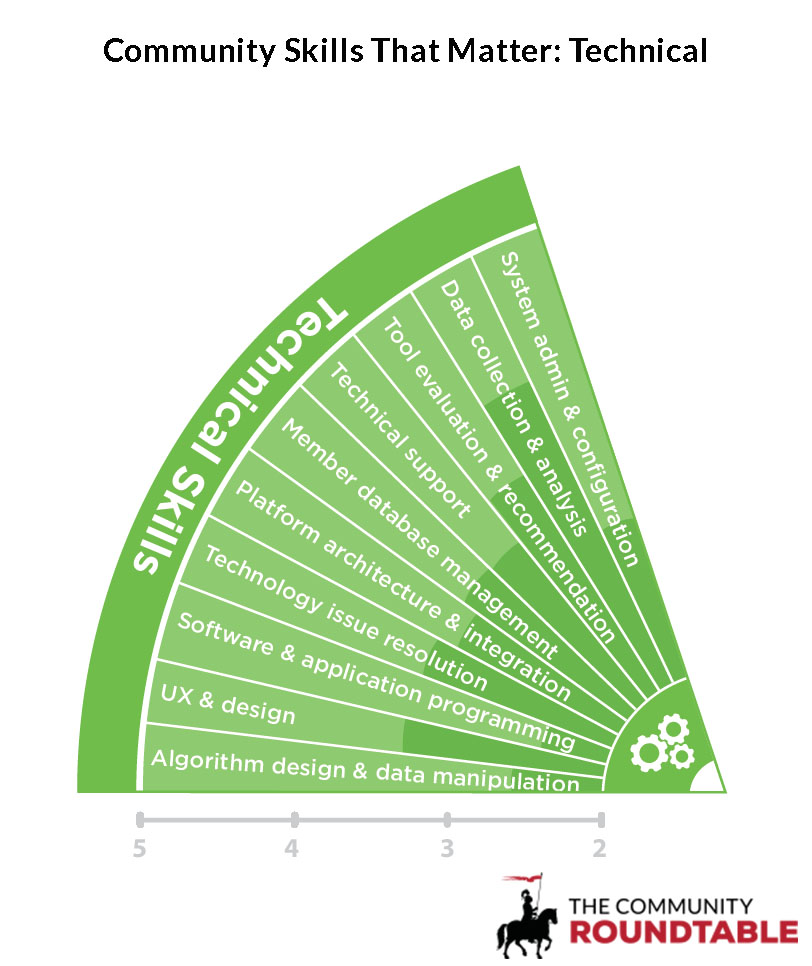 |
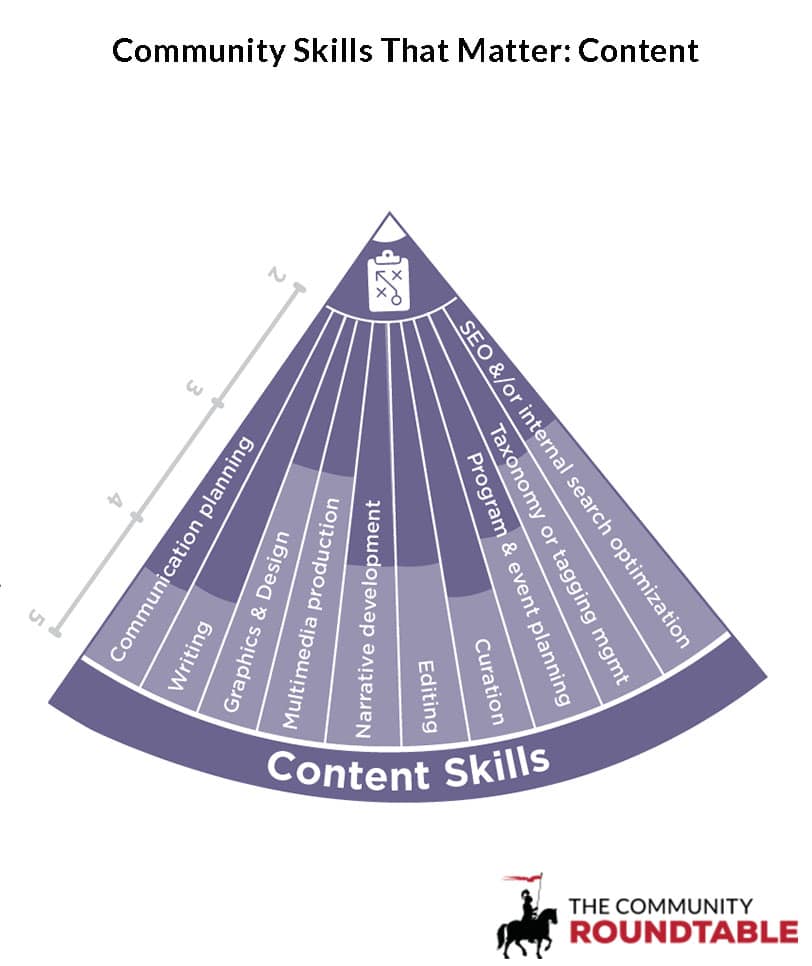 |
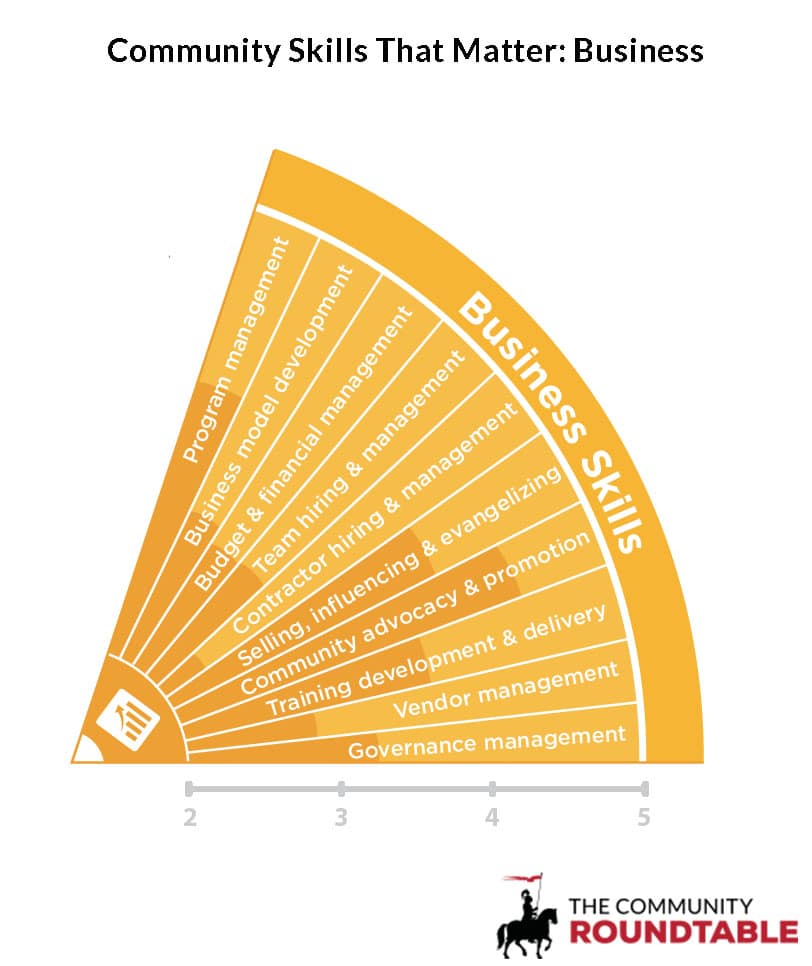 |
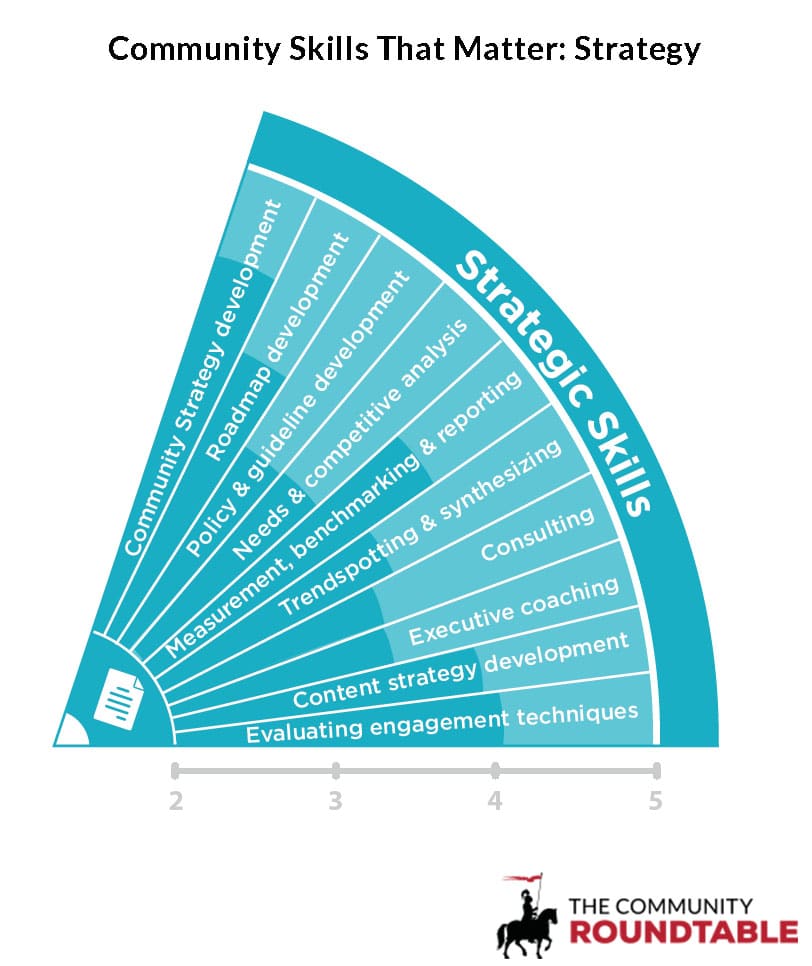 |
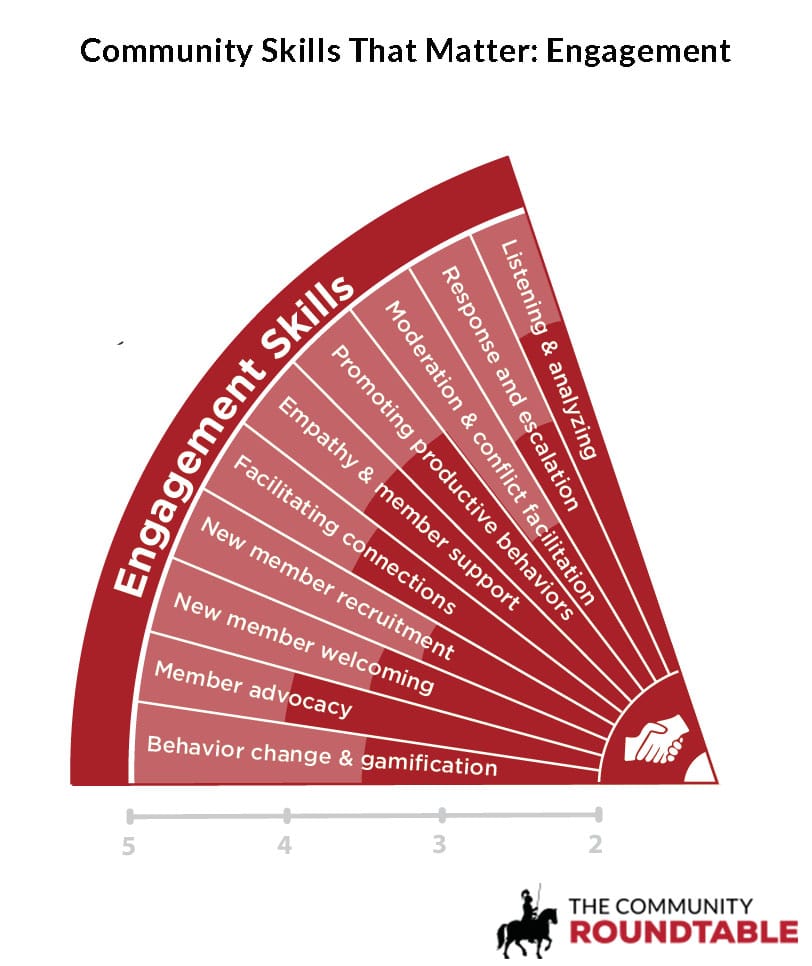 |
